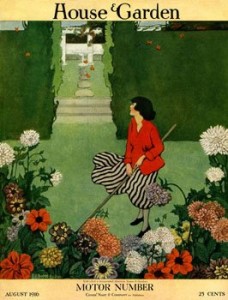The Stuff of Stars and Dirt
Depressed? Go dig in the dirt…
by Pagan Kennedy (The Atlantic)
M. vaccae, a living creature that resides in your backyard compost pile, acts like a mind-altering drug once it enters the human body, functioning like antidepressant pills to boost your mood.
I’m holding a bowl of dirt up to my nose, in hopes of getting high on the fumes of my backyard compost pile. The microbe that I’m after today is M. vaccae, a living creature that acts like a mind-altering drug once it enters the human body. It has been shown to boost the levels of serotonin and norepinephrine circulating in the systems of both humans and mice. In other words, it works in much the same manner as antidepressant pills. And yes, it is possible to dose yourself by simply breathing in the smell of good dirt.
The drug-like effects of this soil bacteria were discovered, quite by accident, about a decade ago. A doctor named Mary O’Brien created a serum out of the bacteria and gave it to lung-cancer patients, in hopes that it might boost their immune systems. Instead, she noticed another effect: The hospital patients perked up. They reported feeling happier and suffered from less pain than the patients who did not receive doses of bacteria. Further studies in mice confirmed the mood-boosting effect of the soil bugs….
For the complete article click here.
Here is some more everyday amazingness, courtesy of Rob Brezsny’s Facebook newsfeed (Free Will Astrology):
“You have at least a million relatives as close as tenth cousin, and no one on Earth is any further removed than your fiftieth cousin. With each breath, you take into your body 10 sextillion atoms, and, owing to the wind’s circulation, every year you have intimate relations with oxygen molecules exhaled by every person alive, as well as by everyone who ever lived” (Source: Guy Murchie, “The Seven Mysteries of Life”)
“And our atoms, born in stars, are so vigorously recycled, we each contain a few that once belonged to William Shakespeare, Buddha, or Genghis Khan.” (Source: Bill Bryson, “A Short History of Nearly Everything”)
Share
